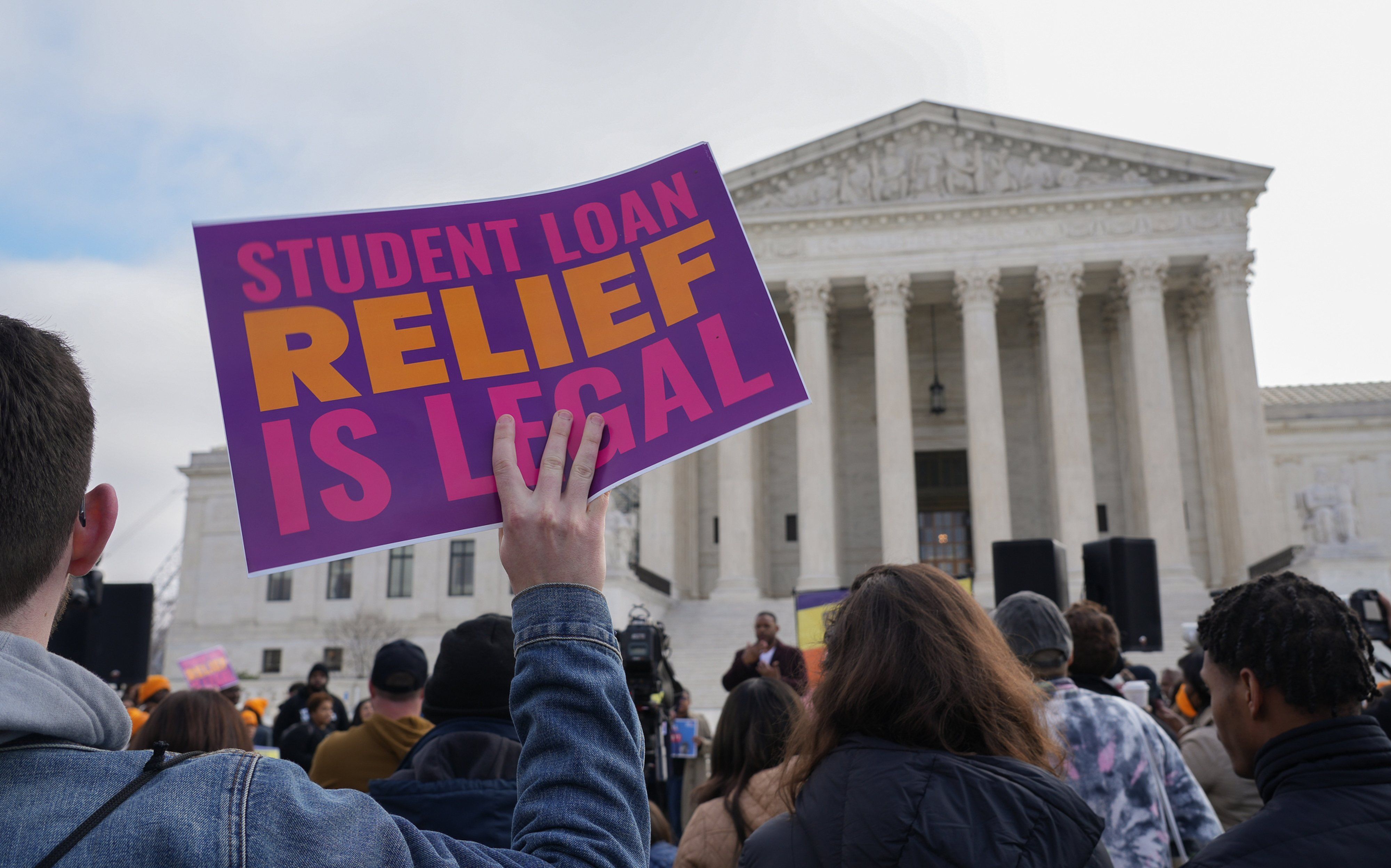What We’re Watching: SCOTUS mulling student debt relief, Blinken visiting Central Asia, Biden's partial TikTok ban, Petro’s post-honeymoon phase
US Supreme Court weighs student loan forgiveness
The US Supreme Court began hearing arguments on Tuesday in a pair of cases that will test the limitations of presidential power and could derail Joe Biden’s plan to forgive $400 billion in student debt. Biden campaigned on debt relief, promising to help families burdened by the pandemic-fueled economic crisis. But now the court will decide whether Biden has the authority to forgive student loans. The White House cites a 2003 law aimed at alleviating hardship suffered by federal student loan recipients following a national emergency, but opponents say debt relief should require congressional approval. Biden hopes to fulfill his campaign promise ahead of next year’s presidential race, and millions of millennials and Gen-Z scholars – many of whom could see up to $20,000 of their federal student loan debt wiped away – will be waiting with bated breath. A decision will drop before the court adjourns in June, but so far, justices in the conservative majority seem critical of Biden’s move.
Blinken’s trip to Central Asia
US Secretary of State Antony Blinken on Tuesday met with foreign ministers from five former Soviet Republics: Kazakhstan, Uzbekistan, Kyrgyzstan, Tajikistan, and Turkmenistan. Blinken wants to signal solidarity with Russia’s neighbors and try to ensure that trade routes in these countries are not used by Russia to evade Western sanctions. The 'Stans are happy for the support because they have all felt pressure from Moscow to form closer ties with Russia. In particular, Putin has pressed Kazakhstan’s President Kassym-Jomart Tokayev, without success, to support Russia’s war in Ukraine. Tokayev has a reason for concern: Putin has cited the defense of persecuted ethnic Russians in Ukraine as a motive for his war, and Kazakhstan is home to the second-largest population of ethnic Russians among former Soviet Republics. These states, faced with varying degrees of economic trouble exacerbated by the food and fuel inflation that followed the invasion of Ukraine, could also use some direct US help. During the visit, Blinken announced $25 million of new funding to support economic growth in the region in addition to $25 million the Biden administration had already pledged.
Will China respond to Biden’s government TikTok ban?
China hit back at the US on Tuesday for joining the European Union in banning TikTok from government devices. China’s foreign ministry said that Washington’s move – which gives government employees 30 days to remove the social app from their phones – is an abuse of “state power.” Canada, for its part, followed up with a similar ban. These developments come amid fears that the app, owned by Chinese company ByteDance but based in Singapore, is being used by China’s Communist Party to gather government data. Will Beijing retaliate? Anna Ashton, a China expert at Eurasia Group, thinks any significant reprisal by Beijing for a partial or even a full TikTok ban in the US is unlikely. “It isn’t clear that Beijing will bear any significant loss if TikTok stops operating in the United States, nor is it clear that there would be any real gain in lashing out over such a ban,” she says, noting that there was no clear retaliation from Beijing when India banned TikTok a few years back. What’s more, Ashton says, “TikTok is a private company, and social media companies (much like online sales platforms) are not strategic priorities in China’s technological development plans.” Meanwhile, Congress will proceed on Wednesday to further a bill that would allow the Biden administration to ban TikTok for America’s 100 million users. Being tough on China is a rare bipartisan policy issue. Still, it’s unclear whether the Democratic-controlled Senate will back the GOP-sponsored legislation.
